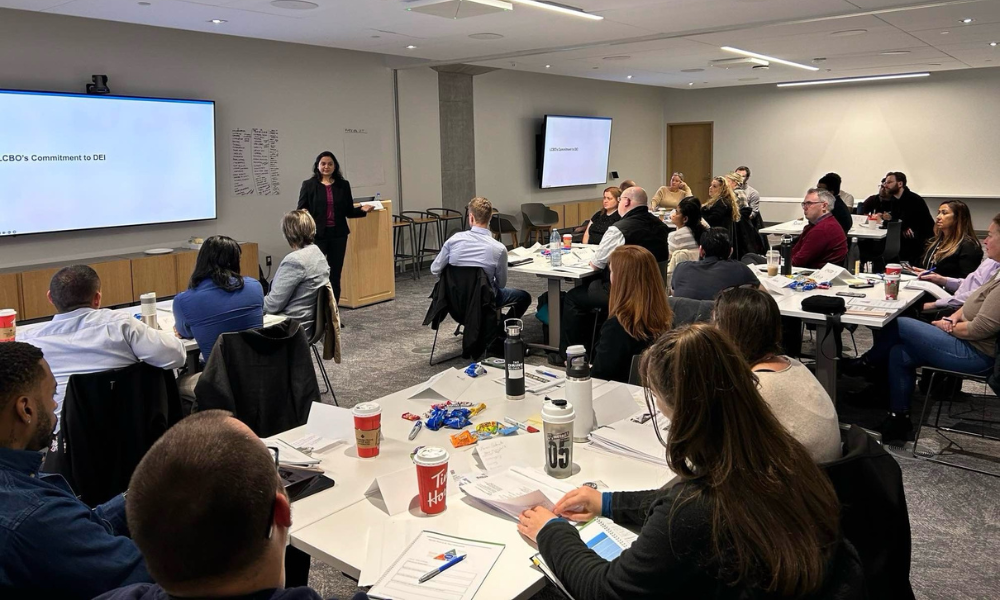
'Support learning and enable team members to drive their learning as opposed to different areas duplicating efforts from a cost perspective'

Stop wasting money on learning tools your employees already have; the real problem with upskilling isn’t budget—it’s visibility, says Nupur Khandelwal, senior director of talent management and DEI at the LCBO.
Companies routinely duplicate learning materials, purchase redundant training and miss out on free, high-impact methods like peer mentoring or train-the-trainer models. And with global corporate training topping $97 billion annually, the lack of centralized learning is a costly blind spot.
Khandelwal is an advocate for culture shift—one that prioritizes internal expertise, links learning to strategic goals, and uses storytelling to prove impact. At HR FutureFest, she will make the case for a leaner, smarter way to upskill that starts not with new tools, but with the people already inside an organization.
Without central awareness, teams end up reinventing the wheel—duplicating learning materials, paying for similar content across departments, and draining time and money on repeat efforts. Her solution is straightforward: centralize and simplify.
“Support learning and enable team members to drive their learning as opposed to different areas duplicating efforts from a cost perspective, time perspective, resource perspective,” she says.
Khandelwal is reimagining upskilling not only as a matter of new investment, but better use of what’s already there. This mindset applies not only to content but to the people behind it. Her team has leaned into a “train-the-trainer” model, leveraging internal subject matter experts as facilitators who understand LCBO’s culture and opportunity.
“You're investing in your own people— co-designing, co-creating and consulting to evolve programs,” Khandelwal says.
This internal focus leverages resources and partnerships while keeping learning highly relevant. It also supports informal learning through peer mentoring, knowledge sharing and on-the-job training, which often benefit more from guidance than from significant spending.
“Explore informal learning programs and initiatives that need more awareness and education, not as much upfront investment from a money perspective,” she says.
Still, even the most cost-efficient learning plan needs to be clearly connected to a purpose. Khandelwal encourages HR leaders to frame training initiatives in terms of strategic impact.
“Talk about the why—why [are you] investing [in] specific internal training—and then talk about the impact you create,” she says.
For her, it’s about making employees feel part of something bigger. By linking training to broader business goals, employees can better see how their personal development feeds into the company’s direction.
“Linking the training to strategic priorities, organizations’ vision, mission, helps individuals connect the dots,” Khandelwal explains.
And to ensure those connections stick, she champions storytelling and sharing journeys as a learning tool—not just metrics, but narratives that bring success to life.
“Report back on data and on stories, like impact and experiences of people, because that helps bring learning to life,” she says.
When it comes to deciding where to direct limited budgets, Khandelwal recommends a dual lens: prioritize business-critical skills first, then determine who should receive them.
“One is prioritizing business needs: what gives you competitive advantage and differentiates,” she explains. “Who do you want to invest [in] and when—is it a certain level, a certain business area, certain people?”
Even digital learning, often seen as expensive, can be optimized. Shared licenses, pooled platforms, and co-created content are just some of the ways to scale without spiraling costs.
“Encourage learner-driven content so that it is created and developed by the individuals also participating in learning,” she says. “It'll cause engagement, but it's also cost effective.”
Khandelwal’s approach is exactly the kind of thinking HR FutureFest is built to spotlight—bold, resourceful, and deeply grounded in the realities of today’s workplace. She doesn’t just talk about reimagining learning; she’s actively doing it, one practical shift at a time.
If you're looking to build learning strategies that actually work—for your people and your budget—then HR FutureFest is where those conversations begin.